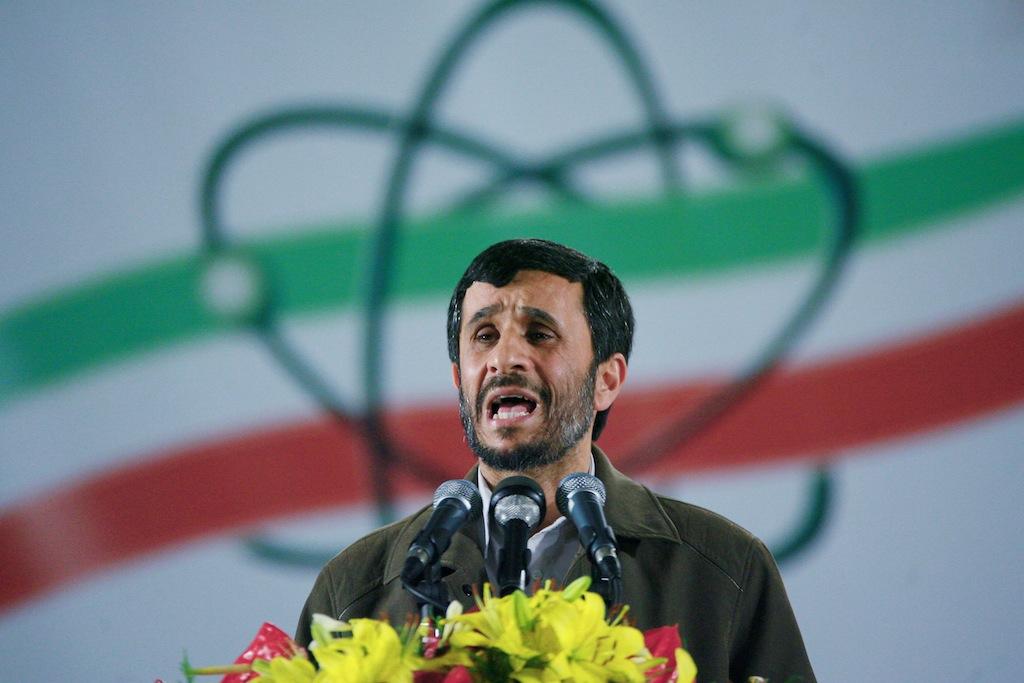Iran: Khamenei opposed to idea of US nuclear talks
Iranian president Mahmoud Ahmadinejad speaks at a ceremony at the Natanz nuclear enrichment facility in Iran, on April 9, 2007.
Ayatollah Ali Khamenei, Iran's supreme leader, has rejected calls for direct talks with the United States that would have resulted in a dialogue about the nuclear standoff.
In a speech posted online, Khamenei said that the offer of talks came while the United States was "pointing a gun at Iran," BBC news reported.
According to the Associated Press, the video was Khamenei's first reaction to the idea of one-on-one talks between the two countries. Vice President Joe Biden brought up the direct talks, as an alternative to the international discussions that will take place later in the month.
Though Iranian Foreign Minister Ali Akhbar Salehi was receptive to Biden's offer, Khamenei has the final say in all key matters regarding Iranian politics, and he vehemently opposed the idea.
"Talks will not solve any problems," Khamenei said in his statement, which came after the US tightened sanctions against Iran on Wednesday.
The US, along with various other Western powers, believes that Iran's nuclear program is on the precipice of producing large-scale weapons. Iran argues that they're only attempting to gain nuclear fuel for energy reactors and medical applications.
GlobalPost Senior Correpondent in Israel Noga Tarnopolsky spoke to analysts about what Khamenei's rejection means. Meir Javenanfar, an Iran expert at Herzliya Interdisciplinary Center, said it was no surprise. Javenanfar said that in 2011 Khamenei also rejected a US offer to establish a DC-Tehran hotline to prevent an accidental war in the Persian Gulf.
Khamanei's rejection is likely rooted in his own domestic political problems, Javenanfar told GlobalPost.
"He's doing it not only because he's actually opposed to such talks, but also because he faces much instability at home at the moment and any direct negotiations with the United States would widen the rifts within the regime," he said.
We want to hear your feedback so we can keep improving our website, theworld.org. Please fill out this quick survey and let us know your thoughts (your answers will be anonymous). Thanks for your time!
